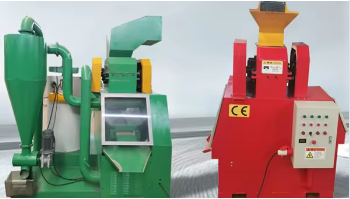

Oct . 05, 2024 05:21 Back to list
The Advantages and Applications of Portable Hammer Mills
In the realm of small-scale agriculture and material processing, the portable hammer mill has emerged as an invaluable tool. Its versatility, efficiency, and mobility make it an excellent choice for farmers and entrepreneurs alike. This article delves into the characteristics, uses, and advantages of portable hammer mills, highlighting their role in modern agricultural practices.
What is a Portable Hammer Mill?
A portable hammer mill is a compact, mobile device designed to grind various materials into fine particles. It operates by using a series of hammers, which are metal bars or blades that rotate quickly within a chamber, striking the material to reduce it to a desired size. These mills are often powered by gasoline or diesel engines, allowing them to be used in remote locations without reliance on a stationary power source.
Key Features
One of the defining features of a portable hammer mill is its adaptability. These machines can process an array of materials, including grains like corn and wheat, biomass such as straw and hay, and even industrial materials like plastics and metals. Additionally, the size of the final product can be adjusted by changing the size of the screens in the mill, making it possible to produce different particle sizes suited for various applications.
Portability is another significant aspect. Equipped with wheels or a frame that allows for towing, these machines can easily be moved from one location to another. This mobility is particularly beneficial for farmers who need to process crops on-site or for businesses that offer milling services in various areas.
Applications in Agriculture
In agriculture, portable hammer mills serve several essential functions. Primarily, they are used to grind feed for livestock. By pre-processing grains and other feed materials, farmers can ensure that their animals receive a nutritionally balanced diet. Hammer mills can pulverize grains to a specific size, which aids in digestion and enhances the efficiency of feed utilization.

Moreover, these mills allow farmers to utilize agricultural waste effectively. By converting straw, corn stalks, and other leftover plant materials into finer particles, farmers can create valuable bedding for animals or compost for soil enrichment. This not only minimizes waste but also provides a sustainable approach to farming.
Economic Benefits
The economic advantages of portable hammer mills cannot be overstated. For small-scale farmers, investing in a portable mill can lead to significant savings in feed costs. Instead of purchasing processed animal feed, farmers can mill their own using locally sourced grains. This ensures that they have control over the quality of the feed and can often reduce expenditures associated with transportation costs.
Furthermore, for entrepreneurs, owning a portable hammer mill opens up business opportunities. Farmers who offer custom milling services can attract more customers by providing on-site milling, eliminating the need for transportation and additional processing fees. This can turn into a lucrative side business, especially in rural areas where many small farms operate.
Environmental Impact
From an environmental perspective, portable hammer mills promote sustainable practices. By allowing farmers to repurpose agricultural waste, these machines contribute to reducing the carbon footprint associated with waste disposal. Moreover, the ability to produce animal feed on-site decreases reliance on commercial feed suppliers, which often involve extensive packaging and shipping processes.
Conclusion
In conclusion, portable hammer mills are more than just handy machines; they represent a shift towards more sustainable and efficient farming practices. Their adaptability, convenience, and economic benefits make them an essential tool for modern agricultural operations. As farmers and entrepreneurs continue to seek innovative ways to optimize production and minimize waste, portable hammer mills will undoubtedly play a pivotal role in shaping the future of agriculture. Whether used for grinding feed, processing biomass, or creating new business ventures, these mills are a testament to the ingenuity and resilience of the agricultural community.
Latest news
Troubleshooting Common Eddy Separator Problems
NewsJul.04,2025
The Role of Metal Recycling Plants in Circular Economy
NewsJul.04,2025
The Impact of Recycling Line Pickers on Waste Management Costs
NewsJul.04,2025
Safety Features Every Metal Shredder Should Have
NewsJul.04,2025
How Industrial Shredders Improve Waste Management Systems
NewsJul.04,2025
How Cable Granulators Contribute to Sustainable Recycling
NewsJul.04,2025